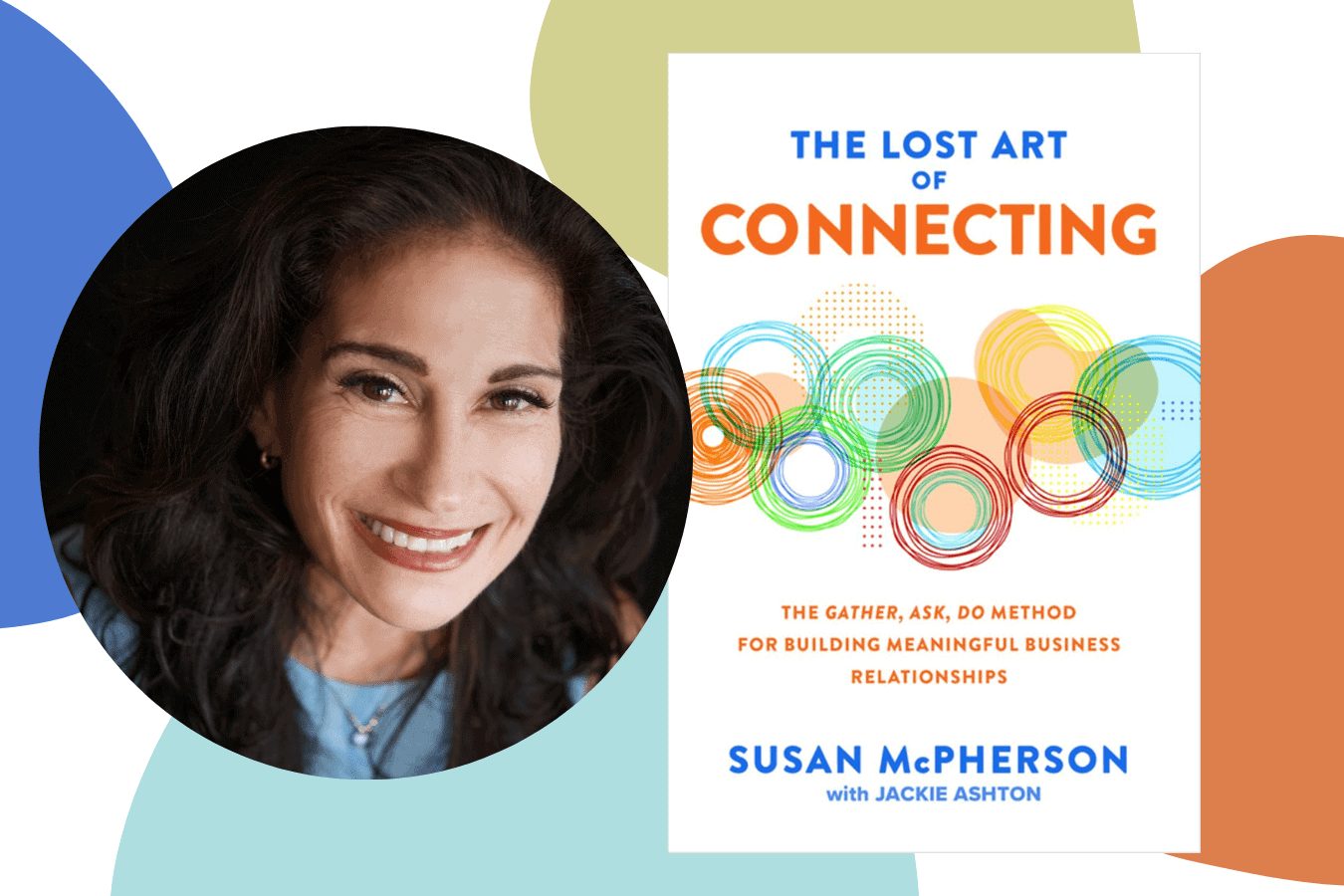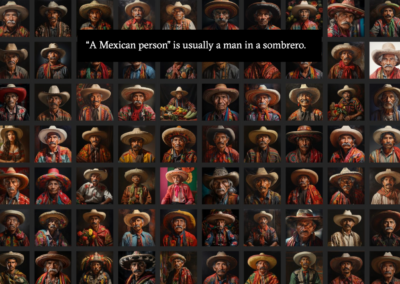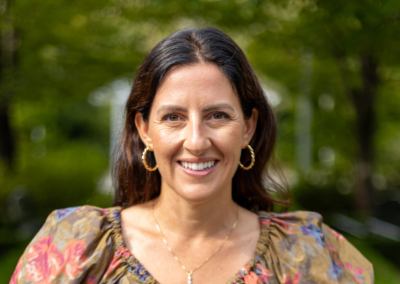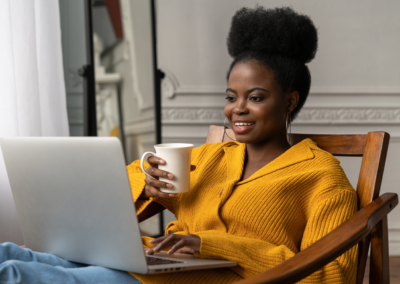Q: The Lost Art of Connecting: The Gather, Ask, Do Method for Building Meaningful Business Relationships is an important book, it’s a book I needed 10 years ago, 5 years, even 2 years ago. What made you decide to write this and share it with the world now and why is the art of connecting so important today?
Susan: Well, I decided to write the book for a few reasons. Leading up to the global pandemic, it was becoming painfully apparent that we were becoming woefully dependent upon our technology devices to connect and interact. The vital component of humanity seemed to be falling by the wayside. My friends, colleagues, and clients were always asking, “Susan, when are you going to share your secrets for building connections and community?” and I realized that after 7 years of running a consulting firm, 98% of our business was inbound, thanks to the deep connections I had built throughout my professional career.
Q: When did you begin to feel that the art of connecting was lost?
Susan: Technology is a great invention if used correctly, but when it’s overused or used in the wrong ways, it can really hinder our ability to connect in a meaningful way with other people. I felt like I was witnessing more and more young people only using technology, and their devices to interact—whether it was by text or email or social media platforms—instead of real in-person engagement. Even some of the mid-life professionals I knew, seemed to be measuring success by the number of followers and LinkedIn connections. Technology can be the cure or it can be the disease itself—it’s all in the dosage that we use and how we use it.
Q: You talk about building meaningful relationships in business by not separating “work Susan” from “after work Susan”. How do you suggest people open themselves up to building meaningful relationships?
Susan: I learned that people become more comfortable when you are just a little bit more vulnerable yourself. It’s why, today, I don’t have a delineation between work and personal connections. Often you have friends that turn into clients and clients that turn into friends. It can be scary to make yourself more vulnerable, and I’m not suggesting you do it all the time—but cracking your shell to people you feel comfortable with, will prove dividends in the long run.
Q: As a Black woman who experiences varying degrees of microaggressions in the workplace, I find it incredibly difficult to open up – What suggestions do you have for people like myself who are guarded because of systemic inequity but want to create real connections at work?
Susan: As a white CIS woman, I know that I have not experienced the challenges you have faced. Bringing your true self to work means being vulnerable, but not everyone deserves or needs to see that side of you. You aren’t obligated to help every person who crosses your path—especially if you feel they’re going out of their way to create confrontational moments. Setting boundaries is important for a number of reasons: It helps you preserve your time, prevents burnout, protects you from breaches of trust, and allows you to focus on the relationships that give you joy. You can build towards meaningful relationships with the right people — trust your gut on who to trust.
Relationships should be reciprocal. Start by choosing a handful of people in your professional life with who you want to deepen your relationships, and ask them for a coffee date or virtual drink. By broadening your relationships with those folks, you won’t be wasting the time or energy on the others. If you don’t authentically enjoy the relationship, it’s not worth your time.
Q: While I was reading this, it reminded me of The Alchemist and The Secret in the sense that there is a spiritual element that exists. In chapter 9 you write “meeting and connecting is for a higher purpose”- Describe some of the differences you’ve observed in connecting on a higher-level vs connecting to secure a job?
Susan: Oh, I love that you came away with this. I’ve never been described as anything close to spiritual, but you’re right, there is definitely a difference. When you’re connecting to secure a job, I immediately think of the (now dated) job board. It was a very transactional process. You would apply for positions and then see if you knew anyone currently employed at the company. If you did, you’d email or perhaps call them asking for an introduction. This is good, but it’s NOT building or deepening a connection. Higher-level or deeper connecting requires an investment to learn more about the other person—not because you have to, but because you want to. Then, over time, through multiple interactions, you create a deeper interaction—one that’s supportive of each other—whether it’s introductions to others, recommendations for nonprofits to support, invitations to online happy hours, or suggestions for favorite restaurants or yoga classes. The point is that it’s built on a foundation that’s not just a single “ask,” where you benefit. It’s built on mutual respect and admiration.
Q: Your book doesn’t waste time acknowledging we’re in a pandemic. You provide several ways to still connect effectively even though IRL connecting is limited. Shed some light on how you completed this book despite the pandemic.
Susan: Well, I didn’t intend for this to be a book about connecting at a time when we were all forced to physically be a part, but it turned out to be something that so many people were grappling with—how to stay connected, to fill that void with friends, family, coworkers—when we’re no longer seeing each other in real life. I am grateful to the many personal connections of mine that I have built over the years who were willing to share their own stories of connection, and how they’ve benefitted from building meaningful connections during their careers.
Q: You talk about the importance of knowing who you are and what you want in order to have more meaningful connections – How does someone build strong connections if they’re still struggling to understand what they truly want or what their purpose is?
Susan: It’s something that will constantly evolve as you grow both personally and professionally. I often joke that I must have had nothing to talk about at parties and work events that I attended in my 20s but over time I worked at developing that constellation of contacts around me, again not because I had to, but because I wanted to help, and be involved, and find other individuals who could challenge me, and broaden my own perspectives. When you do that, you’re able to draw from a much deeper “bag of tricks” if you will—and it’s much more authentic. The first thing I’d recommend is to do an internal personal audit to determine what are your short-term (one month, one year) and longer-term (2-4 years) goals for building and nurturing a community. And remember, it’s not about the numbers in that community but the depth and breadth.
Q: This idea of the constellation method as a way to understand networking is a powerful visual. However, some people may view the opportunities they are afforded as a form of nepotism or cronyism. How do you advise people to differentiate between a “hand-out” vs a well-deserved opportunity borne out of natural alignment?
Susan: When you build meaningful connections that last over time, they are built on reciprocity and respect. And you can’t keep these relationships without delivering on your end of the bargain. If someone taps you for a job or an introduction—you have to do the work so they know that you’re not just looking at this as a one-time opportunity. What may be one-sided at one particular point in time, will see-saw in the other direction down the road. Of course, if one is only doing for others, the relationship is NOT meaningful, nourishing nor beneficial and not what I advocate for. Something I talk about in the book is that whether it’s your first tea with someone or your 500th, tuning in to them, to what makes their star shine will not only make that person feel special, but it will also begin to illuminate the pattern of the constellation that you might create together. That pattern when viewed from a far-off distance will create something powerful and bright.
Q: It’s clear from the beginning the impact your parents had on you while writing this book- I would venture to say they are the initial inspiration for you writing it. In what ways did they inspire you to write this and what about their way of connecting still has merit today?
Susan: Both my parents led-service driven-lives. My father was a history professor who taught at a women’s college for close to 40 years. My mom worked for PBS doing public information/public relations. They were both deep connectors in their own right and raised me to believe it was normal to clip and mail newspaper and magazine articles to friends, loved ones, colleagues, and distant relatives often. I honestly grew up thinking that everyone did that—and it’s something I’ve always carried with me.
Q: You have so many noteworthy moments in this book. I found myself wanting to highlight several sections. While there are many takeaways, name one thing you hope people walk away with after reading this?
Susan: Every person we meet is essentially a road map to new opportunities and adventures, and a chance to learn more about ourselves and the world around us. From my perspective, that is pure magic and it’s what makes the world go round.
Check out our resources page for more good reads and link like this one. You can find pre-order The Lost Art of Connecting: The Gather, Ask, Do Method for Building Meaningful Business Relationships at Amazon or your local bookstore.
Susan’s Socials & Website: LinkedIn, Instagram, Twitter, Website
Editor’s Socials – Asha Atkins: LinkedIn, Twitter, Instagram



